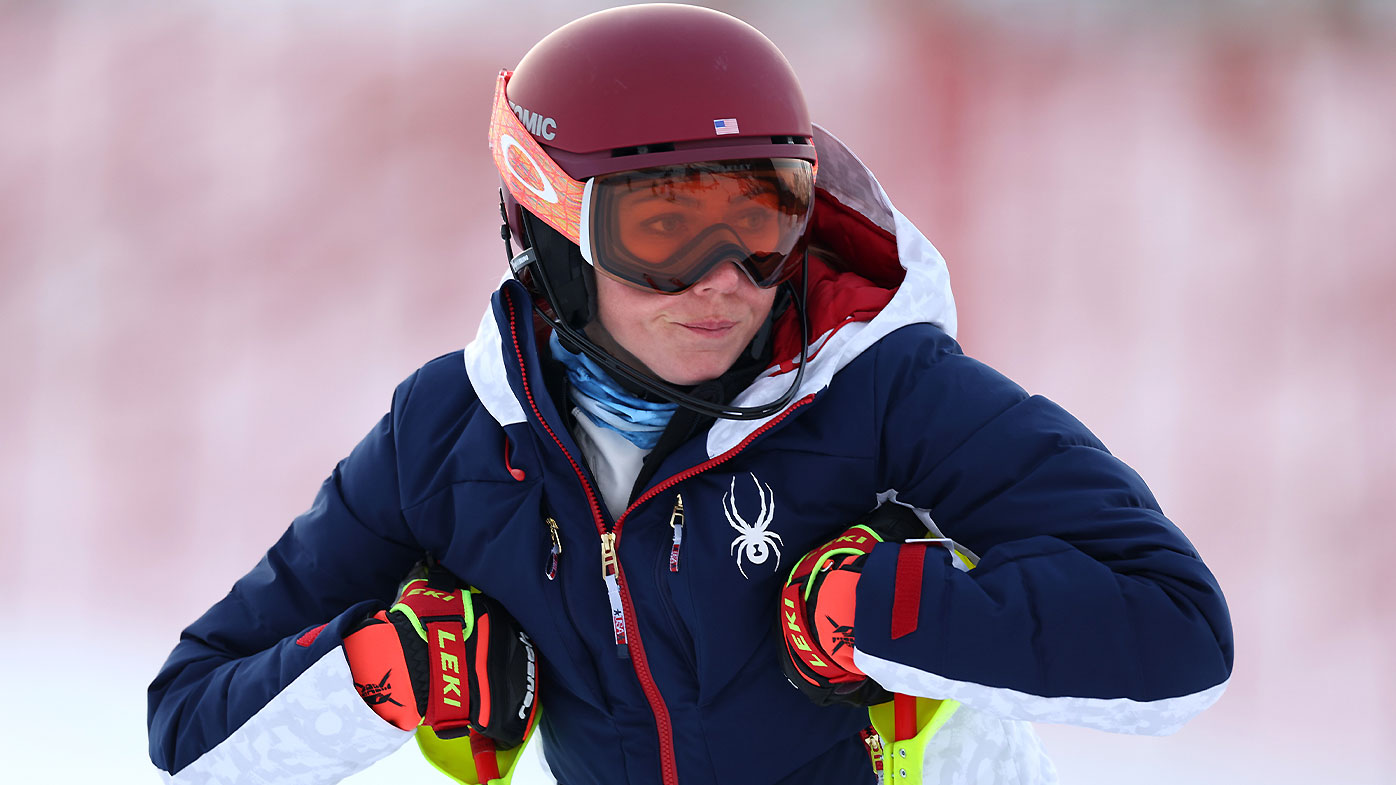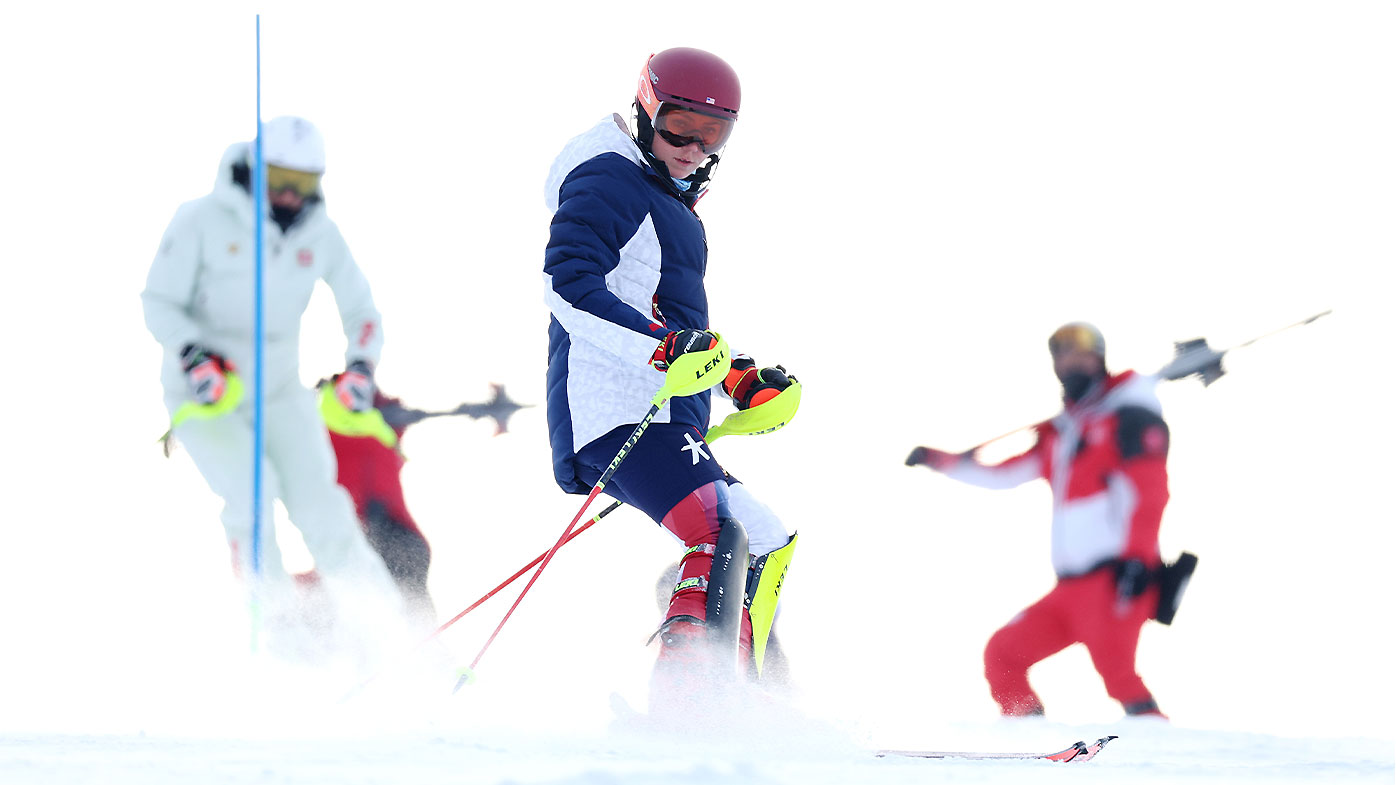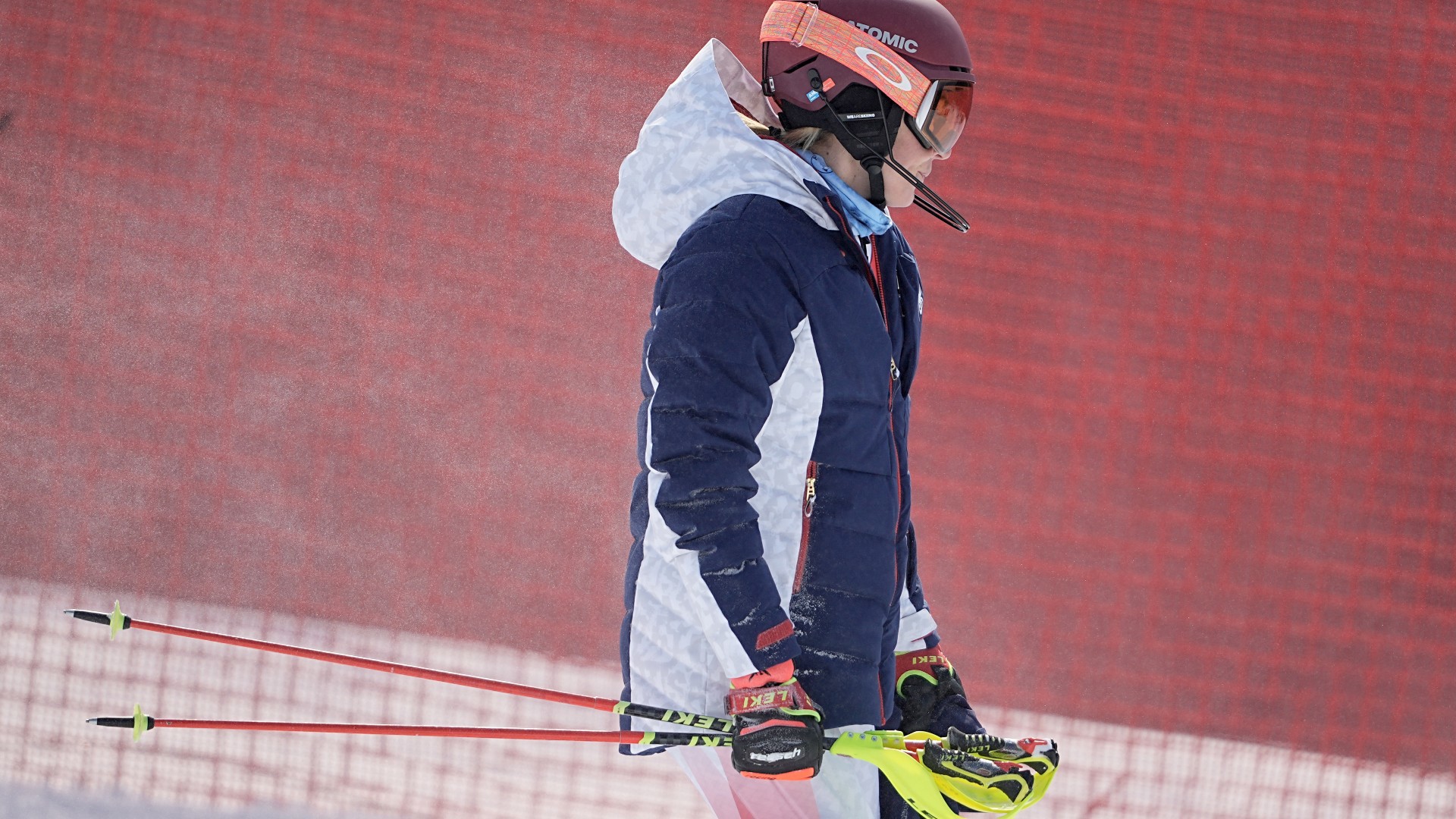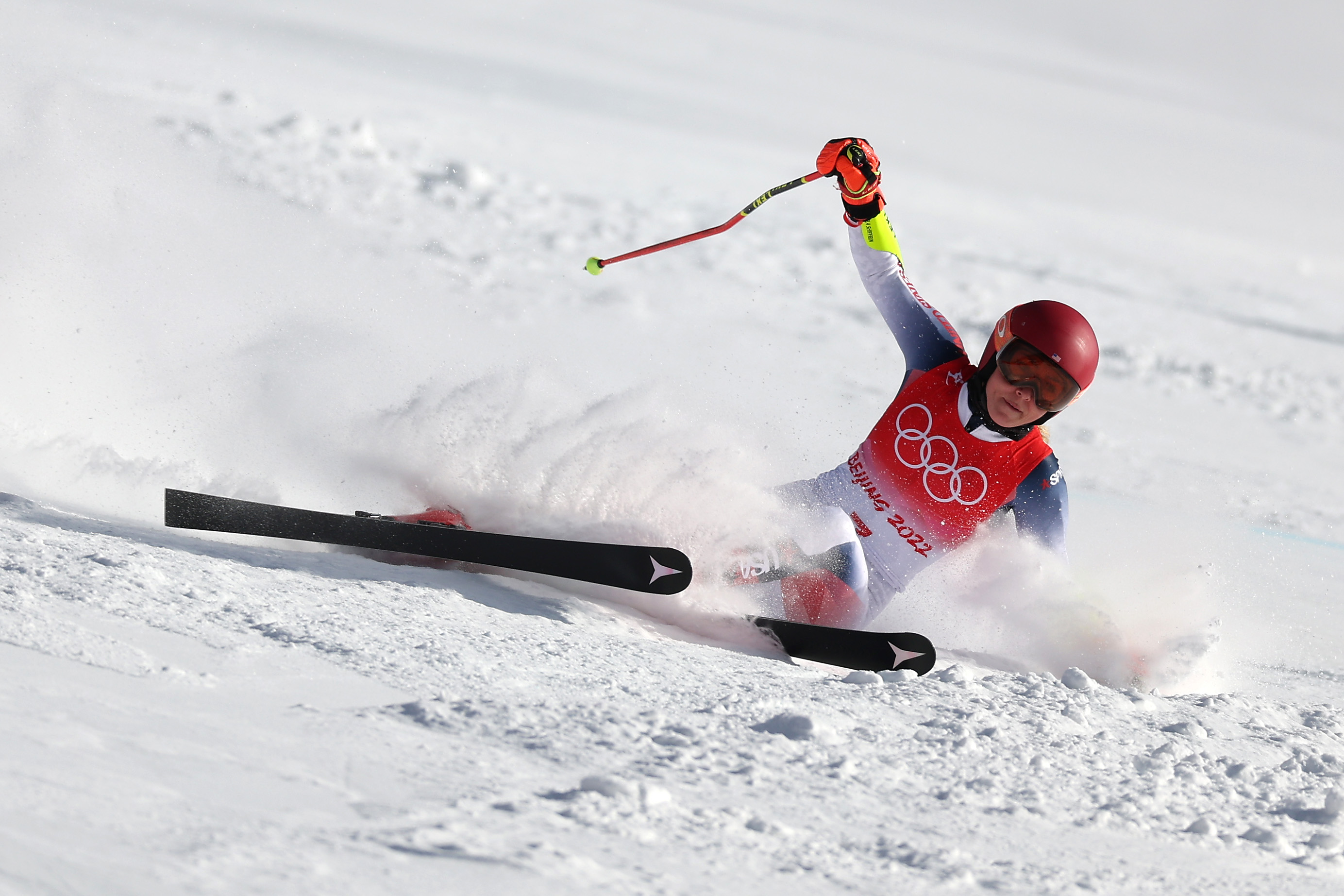The first question posed to Mikaela Shiffrin as she met with reporters after her second consecutive quick exit from an Alpine skiing race at the Beijing Games was short, simple and to the point: What happened?
The complicated, thought-out, talked-out answers that followed entailed little analysis of her actual performance on skis — which lasted all of five seconds before things went awry in Wednesday’s first run of the two-leg slalom, about half as long as the American stayed on course in Monday’s first run of the two-leg giant slalom — and, in the end, boiled down to this: Shiffrin herself was not exactly sure what brought her to this point or where she goes from here.
“I’ve never been in this position before,” the two-time Olympic gold medalist said, tears dampening her cheeks, “and I don’t know how to handle it.”
DAY FIVE RECAP: Referee flattened in Olympic ice hockey chaos
What the shaken Shiffrin was certain of: “It feels like a really big letdown.”
The 26-year-old from Colorado, who won the slalom at the 2014 Sochi Games and the giant slalom at the 2018 PyeongChang Games, was the seventh racer out of the starting hut Wednesday on a course set by her coach, Mike Day.
She began losing her balance and teetering out of control just four seconds and four gates in, swerving too far as she veered to her right. The neon yellow handle of her right ski pole scraped along the snow as she ended up way wide of the fifth gate.
READ MORE: Max Gawn’s blunt response to Simon Goodwin question
READ MORE: Eels star dismisses rampant Moses criticism
Shiffrin went over to the side of the course, clicked out of her skis and plopped herself down on the ground, shaking her head, then resting it on her arms atop her bent knees. That will be the lasting image of this day — back in America, NBC’s coverage lingered on that shot of Shiffrin, drawing anger on social media from some viewers — and, perhaps, of these Olympics for someone who arrived in China as one of the biggest stars of any Winter Games sport.
“GS and slalom, those were my biggest focuses,” she said. “So it really feels like a lot of work for nothing.”
Other racers said the top was not particularly slippery or difficult. Indeed, reigning slalom world champion Katharina Liensberger of Austria — who took the silver behind Wednesday’s gold medalist Petra Vlhova of Slovakia — called it “a really easy course.”
Vlhova, Shiffrin’s top World Cup rival this season, soared from eighth place after the opening run to the victory with a combined time of 1 minute, 44.98 seconds. She claimed Slovakia’s first Olympic Alpine medal ever.
In the closest Shiffrin came to offering an explanation for what went awry, she said was trying to attack too much.
“I was pushing,” she said, “and maybe it was past my limit.”
Shiffrin arrived with plans to enter all five individual races at the Yanqing Alpine Skiing Center, and another gold would make her only the second woman to win at least one from Alpine at three Olympics in a row.
So far, though, Shiffrin is zero-for-two.
It is not stunning that she hasn’t won a medal, let alone a gold this week. As Shiffrin so often reminds everyone, anything can happen on any given day. What is truly surprising is that she has been so off her game, so immediately, in each of her two trips along the course known as the Ice River.
“It’s really sad. It’s never fun to go out,” said Swedish skier Anna Swenn Larsson, 11th in the first run. “I know the feeling.”
Shiffrin’s next opportunity to compete could come Friday in the super-G, although she made it sound as if she might consider skipping that one, saying: “It would be a pleasure to ski. But I also have some teammates who are really fast, and we have the athletes who can fill the spaces. So if I’m going to ski out on the fifth gate, like, what’s the point?”
She never has competed in a super-G at an Olympics but did win it at the 2019 world championships.
What also is noteworthy about all of this is that Shiffrin is known for being so consistently sound on the slopes, like a metronome that never misses a beat. She might be slower than other athletes on a given day, sure — no one is perfect — but what she so rarely does is flub a maneuver in such a manner as to not even make it all the way down the hill. The “Did Not Finish” on Monday was her first in a giant slalom since Jan. 23, 2018.
Her 47 career World Cup wins in the slalom are more than anyone else has won in any single event.
“My entire career has taught me to trust in my skiing if it’s good skiing and that’s all that I have to rely on. … Of course the pressure is high, but that didn’t feel like the biggest issue today,” she said. “So it’s not the end of the world, and it’s so stupid to care this much, but I feel that I have to question a lot now.”
Shiffrin has shared much about her innermost thoughts over the past several months, via social media and traditional media. She discussed the ways in which she empathized when athletes at the Tokyo Olympics such as gymnast Simone Biles and swimmer Caeleb Dressel shared their feelings about pressure and expectations.
And Shiffrin has been open about the difficult task of carrying on after the accidental death of her father, Jeff, in February 2020.
“Right now, I would really like to call him, so that doesn’t make it easier,” Shiffrin said Monday, pausing between words, her voice shaking.
Then, with a laugh, she continued: “And he would probably tell me to just get over it. But he’s not here to say that. So on top of everything else, I’m pretty angry at him, too.”




